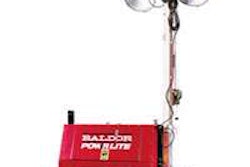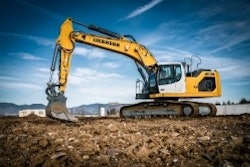The Environmental Protection Agency (EPA) has awarded the Texas Transportation Institute’s (TTI’s) Center for Air Quality Studies a $500,000 grant two-year project will monitor nitrogen oxide (NOx) emissions of road construction equipment before and after the installation of an emission reduction system, called selective catalytic reduction (SCR).
This system uses ammonia injection to convert NOx into mostly harmless nitrogen and water.
The EPA grant was proved in an effort to lessen the emissions from “off-road” construction equipment.
“Reducing emissions from diesel engines is one of the most important air quality challenges facing the country today,” says Jim Blubaugh, director of the National Clean Diesel Campaign Office of Transportation and Air Quality for the EPA in a written statement. “The EPA’s National Clean Diesel Emerging Technologies Program provides an opportunity to advance new, cutting edge technologies that reduce diesel emissions from existing fleets and protect public health.”
TTI has partnered with the Texas Department of Transportation (TxDOT) to test six diesel burning asphalt re-claimers and crawler loaders. There are 3,000 individual pieces of off-road construction equipment in the TxDOT fleet.
“The project will help verify for the EPA that this technology works in the real world,” says TxDOT Fleet Manager Don Lewis in a press release. “TTI will measure the NOx emissions while the road equipment is in use. Lewis expects the results to show a 65 to 80 percent reduction in NOx after the SCR systems are installed.”
The SCR devices used in the project are manufactured by Nett Technologies in Ontario, Canada.
The testing will primarily take place in the Dallas area.
In addition to the TTI project, three other similar $500,000 grants were awarded in Texas, funded by the recent federal stimulus.







